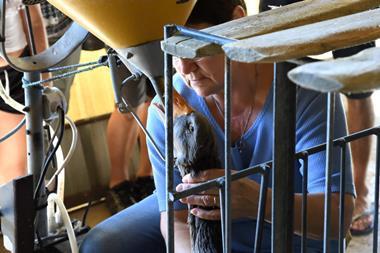
Labour’s manifesto proposal to stop highly caffeinated energy drinks being sold to under-16s in shops and online was a welcome one. It would be a step in the right direction in helping to protect children’s health.
The Conservative government consulted on a ban back in 2018. For too long, many irresponsible companies have been selling kids energy drinks that not only harm their physical, mental and dental health but also impact on their concentration in classrooms.
Now more than ever, we need to see a future where the health of our children is put above the interests of food industry giants, and this must include action that matches the scale of the challenge we face.
In May last year, the Obesity Health Alliance challenged all political parties to prioritise child health, to build on what works and to empower local communities. We hoped to see a race to the top on clear commitments for health improvement, with positive manifesto ‘promises’ being matched by practical plans for delivery. We also wanted a renewal of the existing commitment to halve childhood obesity by 2030, within a comprehensive obesity strategy.
Without doubt, people are not choosing to be unhealthier. Unhealthy food has been made so available that it is almost unavoidable. It is heavily promoted and significantly more affordable than healthier options. It’s fundamentally clear the public wants action from politicians to create a healthier environment for every child, and this must mean a greater focus on prevention.
Given the overwhelming evidence that advertising impacts both what children eat and how much they eat, it has been encouraging to see that all major parties have committed to delivering regulations to protect children from unhealthy food advertising.
As a reminder, in May 2022, the UK government passed primary legislation to restrict adverts for less healthy products on TV (including paid for on demand) before 9pm, with 24-hour restrictions online (including video and gaming streaming). These regulations were meant to come into effect in January 2023, but the current government took the decision to delay the regulations until October 2025, ostensibly to “give industry time to prepare”. These commitments, whilst not new, mean the food industry can continue to prepare for the incoming restrictions in earnest.
Sadly, many of the levers that are needed for improving health and reducing inequalities do not exist within the Department of Health & Social Care. There are, however, signs from Labour (“a mission delivery board”), the Lib Dems (“Health Creation Unit”) and the Green party (“Public health to be cross-government”) that they will take a much-needed cross-governmental approach to health.
The healthy option needs to be the most affordable and accessible option for everyone. We have seen the soft drinks industry levy to be an enormous success, reducing sugar intake across all socio-economic groups without leading to a fall in sales.
Read more:
-
Replacing apprenticeship levy and a ‘genuine living wage’ among key Labour manifesto pledges
-
Conservatives pledge retail crime clampdown and online rates rise
-
Lib Dems pledge to scrap business rates and establish recommended genuine living wage
-
Food industry has ‘got away with murder’ on UPFs claims Lords’ inquiry chair
There is currently little in the way of incentivising industry to sell healthier food and drink options, and only the Lib Dems propose to extend the soft drinks levy to juice-based and milk-based drinks that are high in added sugar. Any revenue raised from such fiscal measures could be used to expand access to cheaper, healthier food, like Labour and the Green Party’s proposed school breakfast clubs.
All children have the right to grow up healthy, no matter where they live. Across the country, local leaders are eager to make their communities healthier, but often lack the powers and resources to do so. Labour acknowledges this by proposing to stop multinational companies from forcing councils to water down their child health plans, and the Lib Dems propose supporting local authorities to restrict outdoor advertising.
Furthermore, the next government must lead by example in addressing weight bias and stigma, as the Lib Dems propose reframing obesity as an issue of collective rather than personal responsibility.
Every government for decades has failed to take the necessary action to improve people’s lives. While there is no silver bullet to solving obesity, whoever comes into power on the 5 July has a massive opportunity to empower people to live freer, healthier and happier lives.



















No comments yet